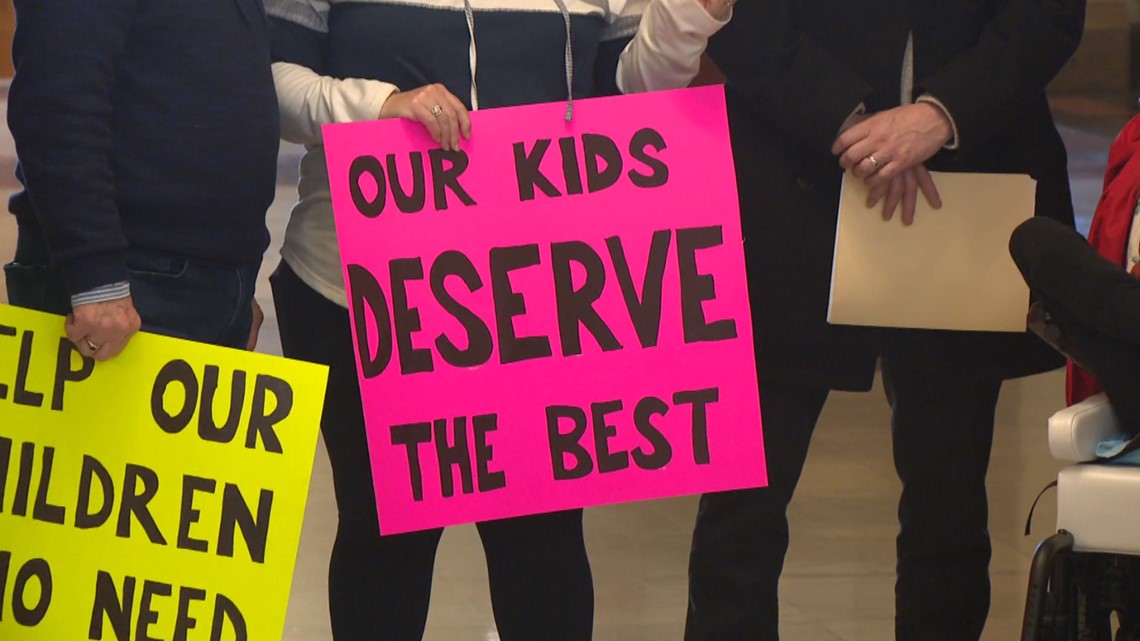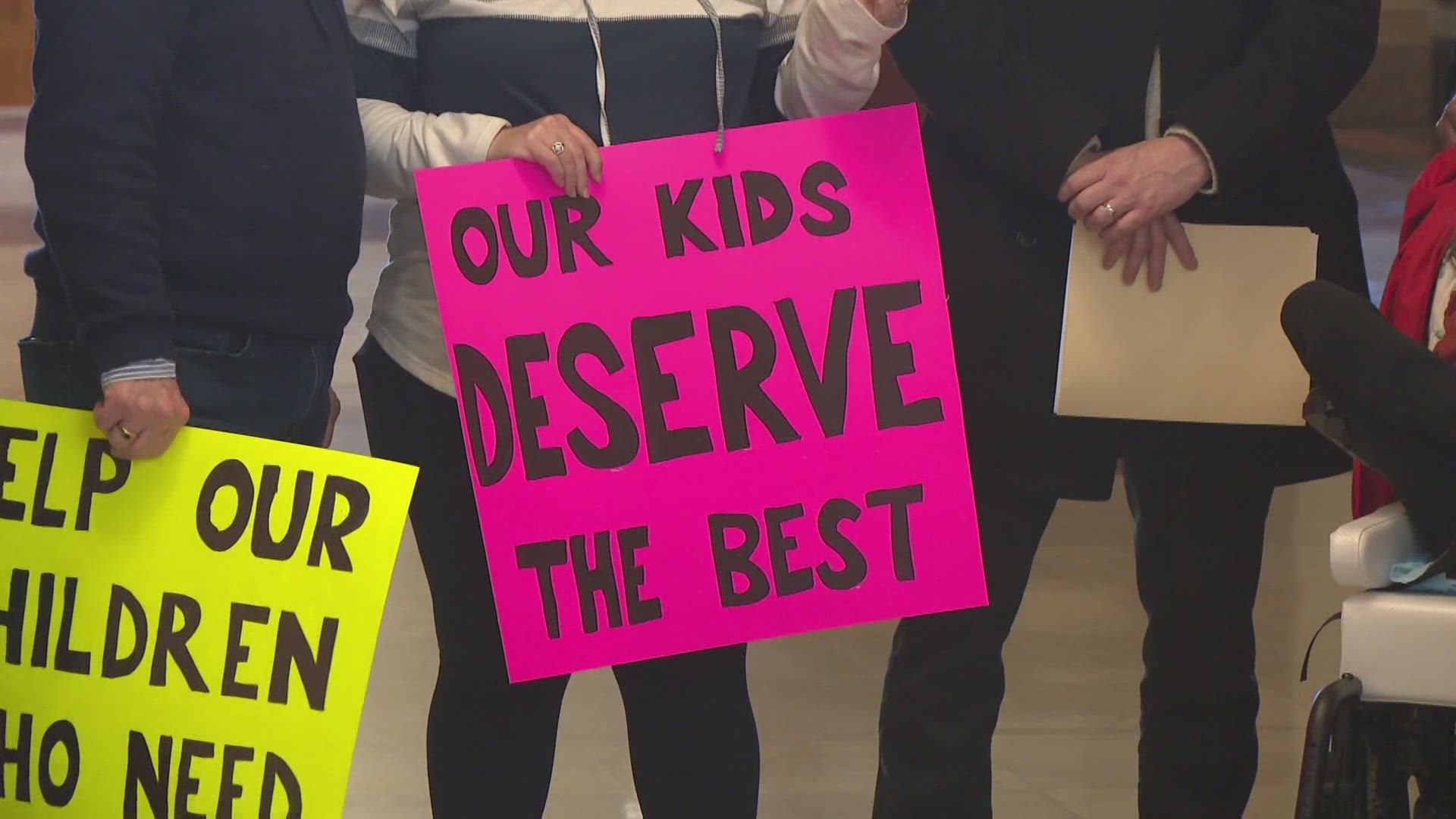INDIANAPOLIS — Parents of kids with special needs were at the Statehouse Monday as part of an ongoing protest to proposed cuts by the Family and Social Services Administration, cuts the families said would impact the care they give their children.
The cuts are part of FSSA's plan to make up some of an almost $1 billion shortfall to its Medicaid budget, a shortfall they announced in December.
The agency says it plans to make up $300 million of that by cutting a program that pays parents of special needs kids to take care of them at home.
"Somebody needs to stand up for those who don't have a voice. Most of these kids are non-verbal," said Renee Case, whose 6-year-old daughter Ivy was born with a rare genetic disorder.
Case's 6-year-old daughter, Ivy, was born with a rare genetic disorder.
"She cannot sit, stand, walk, do anything on her own. She cannot dress herself. She cannot feed herself. Her vision is not the greatest either. She's nonverbal. She can't communicate. She requires 24-7 care," Case said.


Since 2022, Case and many of the parents who came to the Statehouse Monday, have been part of the state's Attendant Care Program. It allows parents of kids with special needs, like Ashley Cleven, to be paid hourly for the care they give their child at home.
"It's been a blessing to be able to provide for our family by being able to be home with him," said Cleven of her 5-year-old son, Ryker, who was born with cerebral palsy.
Now, FSSA is proposing to end the payments to parents, like Cleven, who care for their medically complex children, to make up for a Medicaid budget shortfall. The plan eliminates parents as an option to be paid caregivers for their medically complex children.
The cuts would take effect by July 1.
Other medical professionals, like nurses, would qualify as an attendant caregiver, but families know there is a shortage of those caregivers available to help.
"Something that's already a struggle for him in his life doesn't need to include whether or not his mother can be his caregiver or not, a paid caregiver or not," said Cleven of Ryker's situation.
"They are hoping we won't be able to find somebody to take over our spot, so they don't have to pay for it," Case said.
On its website, FSSA says it's been working to figure out what caused the unexpected increase in Medicaid expenses that led to the budget shortfall, noting much of that growth came in the area of which the Attendant Care Program is part.
The site says FSSA must now "move to a service model that aligns with allowable waiver practices, is more financially sustainable, and also better recognizes support needs of caregivers."
The website doesn't indicate how many families could be impacted by the cuts.
"It's all about numbers. They're not looking at the lives it's affecting," Case said of the cuts.
Many of these parents hoped lawmakers would pause the cuts via a House bill, but that bill never made it to the floor. Parents are still hoping language in that now-dead bill will be added to a Senate bill in the second half of the legislative session.

